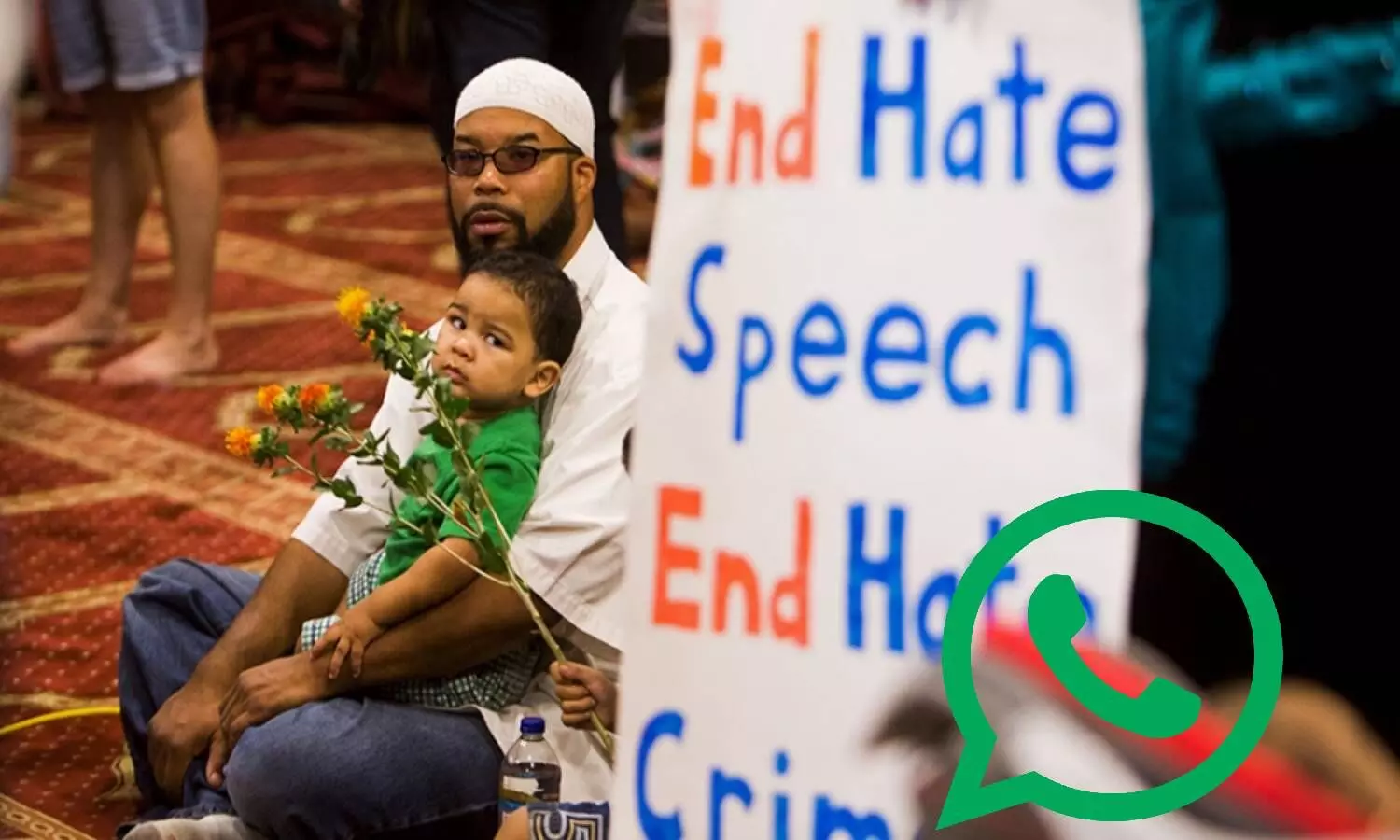Hate speech against Muslims aimed at stoking fear among majority community: Study
A new study has revealed that most of the hate speech against Muslims is aimed at stoking fear among the majority community in the country.
By Sumit Jha
Hyderabad: A new study has revealed that most of the hate speech against Muslims is aimed at stoking fear among the majority community in the country.
Conducted by Indian Institute of Technology (IIT), Kharagpur and MIT Institute of Data, Systems and Society, USA, the study has found most of the hate speeches against Muslims on WhatsApp groups are aimed at stoking fear among the majority community.
"This seems to be a well-planned tactic. Over 1 in 5 messages that mention Muslims in our data has this fear rhetoric," said Kiran Garimella, one of the researchers.
They also observed that the fear speech messages are re-posted by more number of users to more groups as compared to non-fear speech messages, primarily because the users who post such messages are centrally placed in the WhatsApp network.
Fear speech messages clearly fit into a set of topics relating to aggression, crime, and, violence showcasing Muslims as criminals and using dehumanizing representations for them.
According to researchers, given the prevalence of WhatsApp in India the problem of fear speech and the advances in understanding its characteristics and prevalence are valuable. This is especially pertinent since WhatsApp is an end-to-end encrypted platform, where content moderation completely left out to the users.
In their analysis of fear speech messages, they observed that many of them are based on factually inaccurate information meant to mislead the reader. Most users are either not equipped with the know-how to detect such inaccuracies or are not interested, hence getting more and more entrenched in dangerous beliefs about a community.
"We also used a cool new way to understand user attitudes conditioned on their prior beliefs. For instance, using a survey run through Facebook ads, we find that users who engage in fear speech are much more likely to be BJP supporters, oppose CAA, etc. This is not a problem in India or just for WhatsApp. This is one of the most common anti-Semitic tropes in use. But the context we study: India (BJP, Hindu nationalism, etc) + WhatsApp (zero content moderation) is extremely important," said Kiran GarimelThe researchers said that one of the solutions to countering and reducing dangerous speech given the current end-to-end encrypted model on WhatsApp is to educate the users on the facts and encourage with-in community discussion." Even though it is rare, we found some cases where the fear speech was countered with some positive speech. An example message – The biggest challenge facing Indian Muslims at this time is how to prove themselves as patriots? From media to social media, Muslims are under siege, IT cell has waged a complete war against Muslims. . . .A very deep conspiracy is going on to break the country but we have to work hard to connect the country," the researchers said.
Such counter messages could be helpful in mitigating the spread of fear speech. Identifying users who post such messages and providing them incentives might be a good way forward.